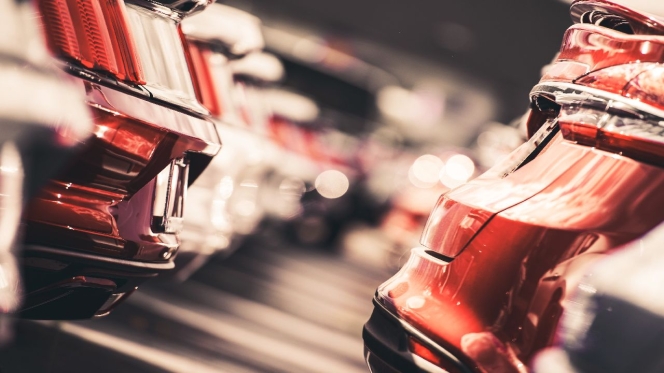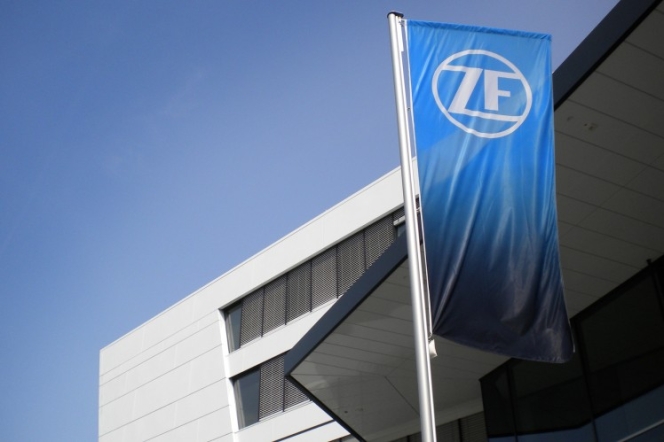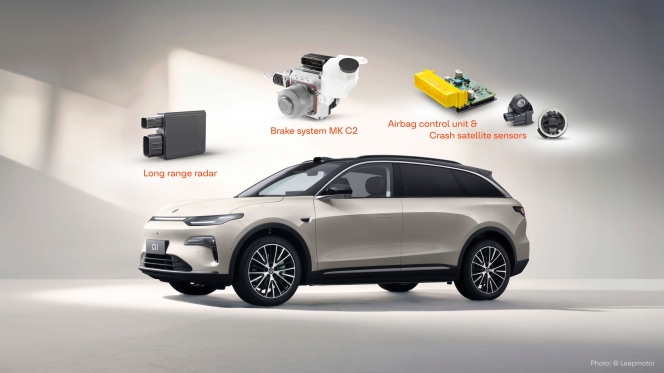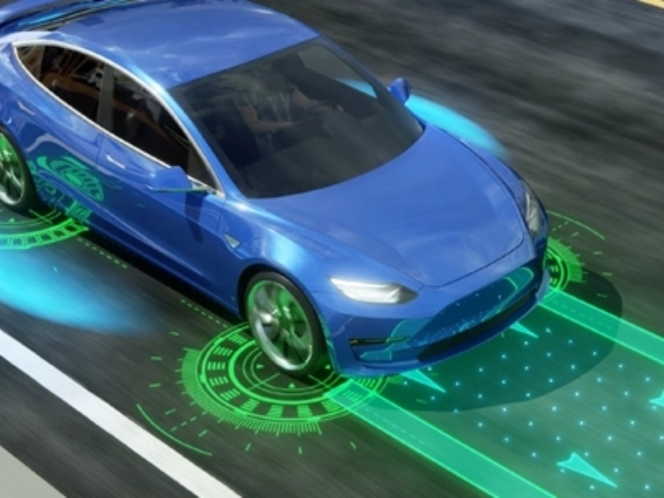
The reasons may be entirely political or geopolitical in nature, the road ahead for Chinese automakers in India looks difficult.
Chinese automaker BYD and its Indian partner Olectra Greentech (formerly known as Goldstone Infratech) is in news for its proposal to set up a manufacturing plant for electric cars in India. Certain ministry officials involved in vetting the proposal have raised security concerns, claimed an industry source.
The truth is hard to ascertain. It is also tough to ascertain the news in various media platforms regarding BYD conveying to Olectra that it would like to drop the proposal to invest in India. The proposal to invest is claimed to be worth USD 1 billion.
Since the clash between the Indian armed forces and Chinese armed forces at Galwan valley in 2020, the Indian Government has tightened scrutiny of Chinese investments in the country. The ones to get affected by this move have not just been the Chinese automakers but also producers of cell phones and other goods.
Key players in the Chinese EV market (also the world’s largest) such as BYD, SAIC and Geely have exerted their interest in exploring the Indian automobile market. While MG Motor India is a wholly-owned subsidiary of SAIC Motor, the Indian partners of BYD and Geely – Olectra Greentech and Adishwar Auto Ride respectively – are not legacy automotive players to be precise.
Against the emerging thought process that India produces among the world’s best automobiles, such joint ventures arrangements are likely to be met with greater scrutiny, the China sentiment included. With much work going on in India on the alternative fuel technologies front, including electric, it is clear that any foreign technology or effort will only be accepted after being truly ‘Indian-ised’ or localised.
The low entry barrier supporting the entry of start ups such as Ather Energy and Ola Electric in the EV space in India, legacy players such as Mahindra & Mahindra and Tata Motors have not stayed behind in their efforts to make exciting EVs that can address the real-time needs of Indian buyers as well as those in other markets.
What needs careful consideration is that they are competing with global players such as Honda and Toyota, which makes the Indian automotive market a tough place to be in.
While players like MG have an Indian management even though it is a wholly owned subsidiary of SAIC Motor (China), the fact is, the going has gotten tough for it too. The situation as a whole for Chinese companies or those that have Chinese partners seems to have turned difficult.
At one end there's rising competition coupled with China sentiment and at the other, there's the need to invest and grow.
With India said to be on the path to become the world’s biggest micro electromobility market, a significant shift at various levels is apparent.
As the biggest employer in the country and the biggest tax player too, the Indian auto sector, the government is keen, turns into a leading manufacturing hub of the world.
Courting EV players such as Tesla, the government seems clear about how it wants the foreign companies to behave when they come to do business in India. It has made itself clear that it is okay with Chinese players coming to India but they should conduct their operations lawfully and in compliance with laws of the country, mention sources. This points at the government being keen on Indian partners having a larger control of the joint venture, they add.
The answer to this thinking may be found in how China treats foreign players organisations wanting to do business there. It makes it necessary for the organisations to have a Chinese partner. Besides that, the foreign organisations are known to face face a number of regulatory and cultural challenges.
The authorities in China are said to favour its own over foreign players. This is despite the commitment by them to invest huge sums and ensure complete transparency in their dealings.
India as a democratic country has its own regulatory and cultural challenges. As the world’s largest two-wheeler market, fourth largest light vehicle market and fifth largest commercial vehicle market, India is likely to come across as a more balanced market with the participation of leading American, European and Japanese brands.
Some may have left because of reasons that are complex and also because of a marketplace that is tough to understand as well as crack. The homegrown automakers such as Mahindra & Mahindra, Ashok Leyland and Tata Motors have been giving tough condition to the foreign players in India by smartly moving up the ladder. They are also expanding their reach to some of the most competitive markets across the globe.
They have been acquiring companies but aren't exactly acquisition hungry. It is not by fluke that Tata Motors, which owns Jaguar Land Rover and the Korean Daewoo commercial vehicle business, has come to command 86 percent of the EV market in India. The automaker has been investing in technology and transparently engaging with its suppliers and other stakeholders to build a market reach.
Mahindra & Mahindra has been making big investments in setting up as well as upgrading its R&D facilities in India. It is making big investments in upgrading its design and development facilities in the country; in testing and validation facilities as well. A sneak peek in the MRV will reveal the extend of efforts being taken.
Underling the Indian Government’s seriousness to turn the Indian auto industry into a leading global manufacturing hub is the stress on local technology development, local content and local manufacture. The efforts to make chips is indicative of the same.
While the BYD, Olectra or BYD-Olectra badged electric buses operated by city and state transport undertakings (state government organisations largely) may be a common sight on Indian roads, it is also evident that the foot print of electric buses made by homegrown manufacturers such as Ashok Leyland and Tata Motors is also fast expanding.
It was roughly two years ago that BYD announced its plans to enter the Indian electric car market, albeit at the premium end with the e6 MPV and latter with the stylish Atto 3 SUV. The company, claim sources, has already invested over USD 200 million in India. Busy expanding its dealership network across the country, it has sold over 2,000 e-cars in India in the last one and a half years, they add.
But then, BYD is not the first Chinese auto maker whose proposal to invest in India seems to have run into rough weather. A few months back, MG Motor India was into news regarding it’s parent company wanting to dilute its stake in it. The reason being given for this, was the delay in the clearing the proposal to hike investment in Indian by its parent – SAIC Motor.
Even though it may appear as an iconic British brand or be projected as one, MG or Morris Garages is owned by a Chinese organisation. The products it offers in India are said to be of Chinese origin even though they are assembled at a factory in Halol, Gujarat.
With the proposal to invest by SAIC Motors being subjected to greater scrutiny, it is not surprising that MG Motor India is said to scout for a strategic investor to raise funds and fuel growth. Facing raid from the tax authority in November 2022, the company has been making efforts to cultivate a strong local supply chain for its products. It is also supporting the start up culture in India by showing interest for cooperation.
Despite the strong China sentiment, it cannot be refuted that businesses in India continue to source from there. A large amount of raw materials for the pharma industry are said to be sourced from there by the Indian pharma companies. Likewise, Indian auto companies are also known to source a good deal of parts – including batteries and electronic parts/modules – from China.
It is necessary that the government and people of India demand that whoever would like to business here should thoroughly engage with the local necessities, regulations and culture in spirit and on paper.
ZF, BMW Sign Long-Term Supply Agreement For Drive Technologies
- By MT Bureau
- February 03, 2026

German tier 1 supplier ZF Friedrichshafen and the BMW Group have entered into a long-term supply agreement for passenger car drive systems. The contract, valued at several billion euros, extends until the late 2030s.
The agreement focuses on the supply and continued development of the 8-speed automatic transmission (8HP). The partners aim to support low-emission mobility and maintain technological flexibility during the industry transition.
A central component of the partnership is the technical evolution of the 8HP transmission kit to meet the requirements of electrified drives. The development will focus on increasing efficiency and performance for future vehicle concepts.
Mathias Miedreich, CEO of ZF, said, “Together with BMW, we are sending a strong signal for innovation, efficiency, and sustainability in an industry undergoing dynamic change. This agreement highlights the strategic importance of our 8-speed automatic transmission as a key technology for the transformation of drive systems.”
The duration of the contract provides both ZF and BMW with planning stability in a changing market. ZF aims to strengthen its position as a system supplier while reducing risks through close collaboration with the carmaker.
Sebastian Schmitt, Head of ZF's Electrified Drive Technologies division, explained, “The new agreement with BMW shows how important long-term planning horizons are for technological advancements. It creates clarity and stability for both companies and enables us to align the next generation of the 8HP specifically toward efficiency, performance, and long-term viability.”
Leapmotor Selects Aumovio For Safety Technologies
- By MT Bureau
- February 02, 2026

Aumovio has entered a supply agreement with Chinese electric vehicle manufacturer Leapmotor to provide safety components for the carmaker’s B and C platforms.
Several models within Leapmotor’s B platform now utilise Aumovio's long-range radar, electric parking brake and airbag control unit (ACU). Models on the C platform, including the C10, C11 and C16 SUVs, feature the latest generation of the MK C2 one-box brake system, alongside the long-range radar and ACU.
The project was completed with a development cycle approximately one-third shorter than traditional automotive timelines. Aumovio attributed its speed to ‘local-for-local’ strategy in China, where the company operates 20 sites and employs around 10,000 staff. In 2024, Aumovio held a 14 percent share of market revenue in the region.
The supplied technologies include:
- MK C2 Brake System: A unit combining the master cylinder, electronic brake system, and brake booster. It is produced locally in Shanghai.
- Long-Range Radar: A sensor with a detection range of up to 280 metres, used for driver assistance across both platforms.
- Airbag Control Unit (ACU): Integrated with crash satellite sensors, these components are manufactured in Changchun.
Boris Mergell, Head of the Safety and Motion business area at Aumovio, said, “Pairing ‘China speed’ with ‘German quality’ technologies helped us to support a rapid roll-out with our latest safety technologies. This underscores Aumovio’s course towards an adaptive powerhouse that works flexibly and closely with customers to innovate. It also shows that we continue to strengthen our customer relationships in the important market China.”
The partnership supports Leapmotor’s international presence. The B10 and B05 models, which feature Aumovio's ACU and radar technology, were showcased at the IAA 2025 in Munich as part of the manufacturer's European entry.
LTTS Secures Multi-Year Deal From Automotive OEM For Engineering And R&D
- By MT Bureau
- January 28, 2026

Bengaluru-headquartered ER&D company L&T Technology Services (LTTS) has announced a multi-year engagement within its mobility segment from an automotive manufacturer. The agreement involves software, connectivity and digital engineering services across vehicle technology domains. This win follows the company’s investments in R&D labs and mobility infrastructure designed for programs with global manufacturers.
The engagement covers mobility engineering capabilities, including embedded systems, digital platforms, verification and validation, cloud integration and cybersecurity. LTTS intends to use its engineering expertise and delivery frameworks to support the customer's technology roadmap.
At present, LTTS operates 22 design centres and 100 innovation labs globally.
The agreement strengthens the partnership between LTTS and the automotive manufacturer in the area of mobility engineering. The company provides design, development, and testing services across the mobility, sustainability, and tech segments.
Alind Saxena, Executive Director and President, Mobility and Tech at L&T Technology Services, said, “We are proud to deepen our partnership with the valued customer through this strategic engagement. LTTS brings together domain-led engineering, secure development practices and excellence in global delivery to accelerate the future of premium mobility. The win reflects the trust placed in our teams and our commitment to delivering world-class engineering at scale”.
Valeo And NATIX Network Partner To Develop Open-Source World Foundation Model
- By MT Bureau
- January 25, 2026

French technology company Valeo and NATIX Network have announced a partnership to develop a multi-camera World Foundation Model (WFM). The project combines Valeo’s research in artificial intelligence and generative modelling with NATIX’s decentralised physical infrastructure network (DePIN) to create an open-source platform for autonomous driving and robotics.
The initiative aims to move beyond perception-based models by creating a system capable of predicting future states and reasoning about physical interactions in a four-dimensional environment. The model will be trained using NATIX’s data network, which has collected 600,000 hours of video data across the US, Europe and Asia over seven months. This data provides the multi-camera inputs necessary for the spatial perception required by autonomous vehicles and robots.
The partnership builds upon Valeo’s existing open-source frameworks, VaViM (Video Autoregressive Model) and VaVAM (Video-Action Model). While these frameworks were previously trained primarily on front-camera datasets, the integration of NATIX’s multi-camera network expands the AI’s field of vision to 360 degrees.
Under the open-source framework, the partners will release models, datasets and training tools. This approach is intended to allow the research community to fine-tune models and benchmark physical AI across various driving conditions and geographic regions. The collaboration seeks to accelerate the deployment of end-to-end AI models by learning from real-world edge cases captured by vehicles in operation.
Marc Vrecko, Chief Executive Officer, Valeo’s Brain Division, said, “Since our creation in 2018, Valeo’s AI research center has been at the forefront of AI research in the automotive industry, especially in the fields of assisted and autonomous driving. Our goal has always been to advance mobility intelligence safely and responsibly. By combining Valeo’s generative world modeling research expertise with NATIX’s global multi-camera data, we are accelerating both the quality and the accessibility of next-generation end-to-end AI models, enabling the research community to build upon strong open models.”
Alireza Ghods, CEO and Co-Founder, NATIX, added, “WFMs are a once-in-a-generation opportunity — similar to the rise of LLMs in 2017–2020. The teams that build the first scalable world models will define the foundation of the next AI wave: Physical AIs. With our distributed multi-camera network, NATIX has a clear advantage of being able to move faster than large OEMs.”







Comments (0)
ADD COMMENT